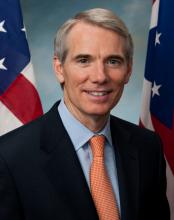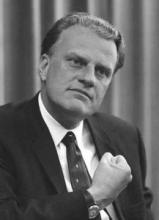compassion
Whom Shall I Send?
Drawing on years of pastoral and executive experience in churches and parachurch organizations, Sherry Surratt and Jenni Catron deliver on the pragmatic promise of their book's title, Just Lead! A No Whining, No Complaining, No Nonsense Practical Guide for Women Leaders in the Church. Jossey Bass
Giving Thanks
Dreams. Wind. Bread. Oriental rugs. Puppet shows. These are a few of the inspirations for Benedictine Brother David Steindl-Rast's 99 Blessings: An Invitation to Life. These short, concise, sometimes whimsical prayers of gratitude for gifts great and small are invitations to increase our awareness of life's daily wonders. Image

Republican U.S. Sen. Rob Portman on Thursday announced he has reversed his longtime opposition to same-sex marriage after reconsidering the issue because his 21-year-old son, Will, is gay.
“It allowed me to think of this issue from a new perspective, and that’s of a Dad who loves his son a lot and wants him to have the same opportunities that his brother and sister would have — to have a relationship like Jane and I have had for over 26 years,” Portman told reporters in an interview at his office. Portman said his son, a junior at Yale University, told his wife, Jane, and him that he’s gay and “it was not a choice, it was who he is and that he had been that way since he could remember.”
The conversation the Portmans had with their son two years ago led him to evolve on the issue after he consulted clergy members, friends — including former Vice President Dick Cheney, whose daughter is gay — and the Bible.
IT WAS AS if the poison of the rancorous 2012 campaign had seeped into our social groundwater, tainting family gatherings, Facebook feeds, church coffee hours, and workplace lunch rooms. In my lowest moments I pictured an election-result map rendered with myriad fractures, like windshield glass—a nation of particles and fragments, held together, barely, by begrudging surface tension.
How do those of good will find productive and respectful ways to talk about important civic and moral issues when a significant number of people view their fellow citizens as enemies?
Two recent books, by radically different authors, explore how to stay committed to your principles while reaching out and even finding common cause with those who live and believe differently.
ReFocus: Living a Life that Reflects God's Heart, is by Jim Daly, president since 2005 of Focus on the Family. Faitheist: How an Atheist Found Common Ground with the Religious is by Chris Stedman, the assistant Humanist chaplain at Harvard University and an activist in atheist-interfaith engagement. Daly leads a conservative evangelical institution that has been a major player on the Right in the culture wars of the past three decades (including around what Focus would term the "homosexual lifestyle"). Stedman is a young gay atheist who was once attacked by thugs who shouted Bible verses as they tried to shove him and a friend in front of an oncoming train. And yet both men argue, from both pragmatic and ethical grounds, for actively and respectfully engaging those who hold different beliefs.
DURING THE BALKAN war of the early ’90s, I traveled twice to Bosnia and Croatia. I visited middle-class women whose husbands and sons had been brutally killed. I visited a refugee center filled with people who had lost everything and were at the mercy of any country that would take them in. I visited school children suffering from post-traumatic stress after seeing their parents killed by enemy shells that landed in their homes.
I walked through the rubble of Mostar, where the Friendship Bridge—a massive stone structure named in honor of the many ethnic groups that had crossed it for four centuries—had been bombed and destroyed. In city after city, I saw the destruction of architecture, art, museums—a violent erasure of the cultures that had thrived there.
It was the first time I had seen war up close, and I was shocked by what human beings do to each other.
While I traveled in the Balkans, another war was waged in Rwanda by Hutus against Tutsis—what we now refer to as the Rwandan genocide. Since 2009 I’ve traveled twice to the Democratic Republic of Congo, where the ethnic battles forged in Rwanda crossed borders and continue to this day. As usual in war, civilians pay the highest price. Subsistence farmers in small villages want only to live in peace, tend their crops, and feed their families. Instead, their crops are burned, wives and daughters are raped, and many become slave labor in Congolese mines that provide minerals for our cell phones and wealth for the violent criminals who control the mines.

THE LOUISVILLE LOAN Club, which will open early this year at a storefront in a poor residential neighborhood in southwest Louisville, Ky., is a new economic justice ministry blessed and supported by Jeff Street Baptist Community at Liberty. The brainchild of members Susan Taylor and Andy Loving, it's a company that will make small loans designed to counter predatory payday lenders. Typical payday lenders offer short-term, unsecured loans at interest rates of up to 400 percent or more per year. Average loans are $250 to $500, but many borrowers are not able to pay back the principal and interest at the end of the first loan; instead, they become trapped in a cycle of loans and fees, eventually paying thousands of dollars.
The Louisville Loan Club will offer loans at an annual percentage rate of 18 percent—and offer a path to breaking the cycle. "Any of us can need a small loan at some point," says Taylor, who will oversee the day-to-day operations of the club. "Surely we can do better for each other than to throw someone in need of a small loan into the proverbial shark pool."
Loving and Taylor are modeling their enterprise in many ways on the Pittsburgh-based Grace Period, a church-started alternative check cashing and cash advance service with a five-year track record, Taylor says, of "offering small loans and helping people learn to save their own emergency funds. They built a model of compassion."

Loving God,
Darkness has covered our nation and thick darkness has descended upon our people. Tragedy has clouded out the light. Shots rang out in Aurora, Colorado. Some people were wounded by gas and bullets. Others were murdered.
In this time of darkness may your resilient light shine forth.
May your light shine on the family and friends of the 12 people who were killed during this senseless crime. There's no way to explain the darkness that indiscriminately murders children, women, and men. They were each someone's son, daughter, mother, or father — and nobody can fully understand the immense grief and righteous anger of their loved ones. They need your light, Loving God. Please pour it forth....

Carolyn Winfrey Gillette wrote this hymn based on Micah 6:8 after attending Bread for the World’s Lobby Day on June 12th and reading Jim Wallis’ “The Missing Religious Principle in Our Budget Debates.”
O God, You Call for Justice
AURELIA 7.6.7.6 D ("The Church's One Foundation")
O God, you call for justice—for goodness, never greed!
You seek a world of fairness where all have what they need—
Where all have food and water and homes in which to thrive,
Where all have hope and laughter and joy to be alive!

The reprimand that came out of the Vatican last month has familiar echoes.
The statement addressing the Leadership Conference of Women Religious (LCWR), which represents 80 percent of nuns in the United States, accuses the organization of “serious doctrinal problems” regarding the focus of religious practice, among them, a concern that the Catholic Sisters are too focused on social justice and not enough on voicing the Church’s views on homosexuality or abortion.
For me, the reprimand carries reverberations of similar friction from my undergrad that followed a weeklong retreat on Chicago’s West Side.
NPR reports on a University of California, Berkeley study:
NICK HARKAWAY’S second novel, Angelmaker, is out now through Knopf. His first, The Gone-Away World, found favor with fans of boisterously literate science fiction. Angelmaker is, in many ways, tipped from the same mold as its predecessor. It is unapologetically fun (with a particularly English sense of humor familiar to fans of Stephen Fry and Douglas Adams), stuffed full of blisteringly creative ideas and digressive subplots, and shot through with darker undernotes. In it Harkaway asks some large questions about (among other things) the nature of identity, who owns the truth, the dark side of the will to power, and the true cost of the preservation of stability. The novel also makes a strong case for the power of compassion, courage, and the glory of imagination used well.
Angelmaker follows two alternating threads. In one an irreverent and intelligent orphaned girl, Edie Banister, is recruited into wartime secret service with the Ruskinites, an order of men and women devoted to beautiful craftsmanship who have been roped into weapons development. She rescues and falls in love with a genius who is using microscopic clockwork to build a supercomputer that will reveal the truth and end war. This “Apprehension Engine” (the titular Angelmaker), is baroque and bizarre; the force field of truth is to be disseminated by mechanical bees swarming from clockwork hives around the world. Naturally, an unreconstructed dictator wants to use it as a weapon of mass destruction.
The second thread is the present-day tale of Joe Spork, as he attempts to lead a humble, honest life until he is manipulated into adventure by the elderly Banister and pursued by the now-corrupt and terrifying Ruskinites.

Cee Lo Green got himself in some pop-culture hot water on New Years Eve when he changed the lyrics to John Lennon's "Imagine." You would think he was changing the Bible or something, but no, it was much worse. He changed the lyrics to a John Lennon song. "No religions" became "all religions" and all hell broke loose....
Suffice it to say that people were put out. They defended Lennon's unchangeable artistic canon. Green's supporters suggested that all art can be reinterpreted...even John Lennon's. Personally, I didn't find it offensive at all. Instead, I thought it was a thoughtful (if momentary) update to the iconic pop song. Given the religious strife in the world, expressing a love for humanity through all the world's religion was generous and very appropriate for a New Year celebration.
Alas, no. We're beset by fundamentalisms of all kinds (Lennonists?) and on all sides in this nation of ours. We're sufficiently afraid of religiosity that we've turned anti-religiosity into a religion and musicians become gods and their three minute songs become scripture...unchangeable holy writ.
We're afraid and that fear strips us of our compassion.
Free South Africa, To Love More Deeply, When Disaster Strikes, Wrestling with Tradition.

This is true of any bad news, really. When I feel sick. When I don’t get my way. When I’ve had a bad day. You name it. If it’s negative, then I look forward to sharing it. I don’t mean to; I just do.
I sense this is normal, but it doesn’t make it right.

Billy Graham has always been a life-long learner, passionate about preaching the gospel but always ready to understand more about what that gospel means in the world. It was never surprising to me that this southern born and raised American evangelist decided early on to insist on preaching only to racially integrated coliseums and crusades, when many others just went along with their culture. Later, as a result of falling in love with the new congregations we was preaching too in Eastern Europe and the Soviet Union, had a "change of heart" on the nuclear arms race-which we featured in a cover interview with the evangelist in Sojourners magazine. Billy Graham has also been willing to admit his mistakes and grew from them, which is something all of us as "leaders" need to constantly learn from. And while a conservative evangelical all his life, Graham was never drawn to the hard edged and politicized fundamentalism of the "Religious Right" but instead often winced at them.
In case you missed it...
In an OpEd titled, "What the Costumes Reveal," New York Times columnist Joe Nocera wrote about a Halloween office party thrown by the N.Y. law firm of Steven J. Baum, an outfit that specializes in real estate foreclosures -- a "foreclosure mill," if you will -- where, apparently, employees came costumed as homeless and foreclosed-upon families.
Visit msnbc.com for breaking news, world news, and news about the economy
Where is the compassion in our economy and our politics? It says much of the economic system that Sojourners even needs to campaign for a "moral budget." How do we, as Christians, challenge structures that allow billions of dollars to be wasted via tax loopholes while 1 in 6 Americans live in poverty?
Will we, as Sachs hopes,
 "Jesus' spirituality was magnetic. Wherever he went, people gathered. His love, understanding and compassion toward humanity was overflowing and people traveled from afar to find solace in his teachings and to breathe life into their spiritual lives. His message of inclusiveness was seen as a threat by the religious leaders of his time -- whose very existence relied on a system of exclusivity."
"Jesus' spirituality was magnetic. Wherever he went, people gathered. His love, understanding and compassion toward humanity was overflowing and people traveled from afar to find solace in his teachings and to breathe life into their spiritual lives. His message of inclusiveness was seen as a threat by the religious leaders of his time -- whose very existence relied on a system of exclusivity."
Rise of the Planet of the Apes is a surprising addition to the typical summer blockbuster canon -- for one thing, it manages to entertain and challenge, without resorting to gratuitous violence to make its point. But there's a deeper subtext that is even more unexpected -- for this is a story in which we start to lose.
It was fashionable in the late 1960s and early '70s for science fiction films to attempt to out-dystopia each other -- see for example the notion in Soylent Green that post-industrial humanity snacks on itself to survive, the suggestion that only robots can be trusted to look after creation in Silent Running, and the climactic revelation in the original Planet of the Apes that a few generations from now, the nuclear arms race will end in mutually assured destruction. All these point to a simple philosophical idea: that humans cannot be trusted to care for ourselves or the planet we steward.